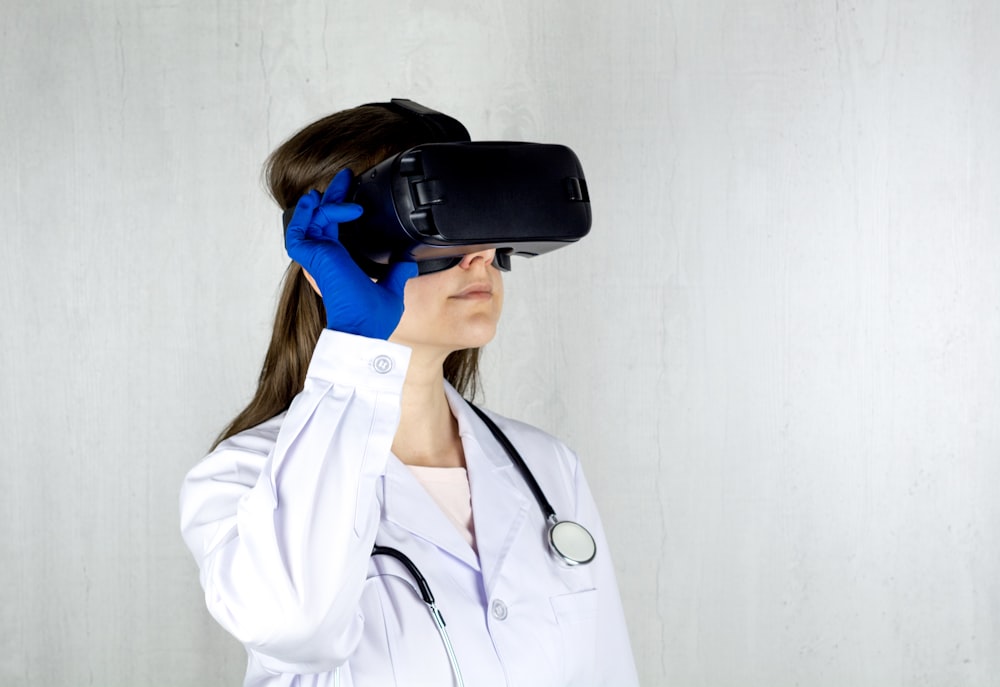Jun 7
2021
How Emerging Tech Is Transforming Medical Care
The medical field is always looking for ways to improve the care they provide. In recent years, there have been many advances in technology that are now being implemented into clinical settings. These changes will help make both doctor’s and patient’s lives easier. Here is a look at some of these new technologies and how they are improving patient care by making it more efficient, personalized, and effective.
Next Generation CT Scanners
The latest next generation CT scanners can take a 3D picture of the inside of your body with significantly more detail than a standard CT scanner can. This is because they provide images with less noise and have improved resolution, making it easier to diagnose many disorders better than the older technology ever could.
A podiatrist in Camarillo, CA, notes that these scanners can also take pictures from multiple angles at once.
This way, doctors can get an even clearer picture of what is happening without having to doing multiple scans. These scanners are much faster than standard CTs because they don’t have as many moving parts and need less time for scanning, all of which means that doctors and patients can spend more time focusing on treatment options rather than waiting in a crowded emergency room.
Virtual Reality Therapy
Virtual reality therapy is also making a big impact in the medical field. VR therapy is a type of therapy that uses virtual reality to create realistic simulations and environments for people who are usually dealing with an unpleasant situation or trauma, like being in combat or having their leg amputated. With this type of treatment, patients can go through various scenarios where they learn how to cope and handle these difficult situations.
VR therapy is still a new and emerging technology, but it’s already being used in hospitals all around the world to help patients with PTSD, as well as those who are recovering from physical trauma or surgery. The applications in future medical fields are endless.
Artificial Intelligence (AI)
AI is increasingly being used in healthcare for diagnosis and treatment recommendations. Doctors are now using AI to diagnose the severity of a patient’s illness and provide appropriate treatment. AI can be trained with data from medical records and hospital visits, which allows it to learn about specific conditions such as heart failure or high blood pressure.
One example of this in use at Mount Sinai Hospital involves an AI app called ELLA, which is trained to provide treatment recommendations for sepsis patients. Sepsis is a serious and life-threatening condition caused by the body’s response to an infection in its bloodstream or tissues. ELLA uses AI with machine learning algorithms to recommend treatments found in previous cases of sepsis.
Digital Health Tools
Over the past few years, we’ve seen the emergence of digital health tools like wearables and apps that help people monitor their own health and well-being. These devices are used to keep track of physical health and provide feedback on your lifestyle choices, such as diet or sleep patterns.
Wearable technology has become more popular as more people look for ways to improve their fitness levels through data-driven insights. Medical experts are now using these tools to improve treatment and diagnosis. By studying data collected by a wearable device, doctors can identify the most effective treatments for various ailments like PTSD and even improve pain management.
Robotic Surgery
Robotic surgery is making it possible for surgeons to remotely control robots from a console to perform operations on patients safely without actually cutting open the patient’s body or making an incision. This new form of surgery is being tested in all practices from heart surgery to brain surgery.
Robotic surgery can allow for smaller incisions that heal faster, less trauma and scarring to the patient because it doesn’t require stitches or staples like open-heart operations and shorter recovery times. This technology will provide profound benefits for doctors and patients alike in the coming years.
Medical Tech Is Here To Stay
There’s no doubt that the future of medicine is in emerging technology. From robotic surgery to AI, the advances made by these technologies are revolutionizing the way we care for our bodies and minds.

The article provides a concise overview of the various technological advancements affecting the future of healthcare. It emphasizes how technologies like wearables, telemedicine, robotics, and artificial intelligence (AI) could enhance patient outcomes and increase the efficiency of healthcare delivery. The use of telemedicine has been significantly impacted by these technologies.